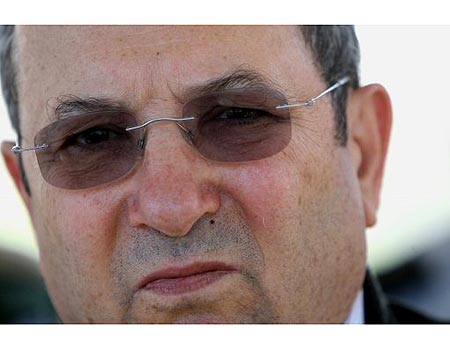"It might be wise to invest another $20 billion to upgrade the security of Israel for the next generation. A strong, responsible Israel can become a stabilizer in such a turbulent region"
In a remarkable Israeli position in terms of its background and connotations, and refers to the extent of anxiety and fear the Israeli entity is witnessing in the wake of revolutions in the Arab world, Defense Minister Ehud Barak said Israel might ask US for additional $20 billion in military assistance.
In an interview with The Wall Street Journal published Tuesday, Barak said that Israel should not fear regional changes or the risk of offering valiant concessions to the Palestinians.
Barak said that while Israel did not "face an immediate threat to its security, the issue of qualitative military aid for Israel becomes more essential for us, and I believe also more essential for you [the US]. Israel should not fear the movement of Arab societies toward modernity."
He nevertheless stressed that the Egyptian public might influence the new leadership in such a way which could cause it to distance itself from the peace treaty with Israel.
"It might be wise to invest another $20 billion to upgrade the security of Israel for the next generation or so....A strong, responsible Israel can become a stabilizer in such a turbulent region."
He believes it is too early to tell whether Iran is taking advantage of regional unrest to expand its influence. Barak also noted that prior to the wave of Arab protests "You could see Arab leaders starting to hedge their bets on who is the strongest leader here, Iran or the United States." In the interview Barak said that according to a senior Egyptian official, whose name he did not mention, Israel should expect "the cold shoulder" from Cairo if it fails to advance the Palestinian peace process.
Israel spends roughly nine percent of its gross national product to guard from potential threats. Its military expenditure amounted to USD 17 billion this year, of which US aid is USD 3 billion.
Tel Aviv has kept a wary eye on a recent tidal wave of anti-government protests that has raced across the Middle East, originating with revolutions in Tunisia and Egypt, which have swept longstanding autocratic rulers from power.
